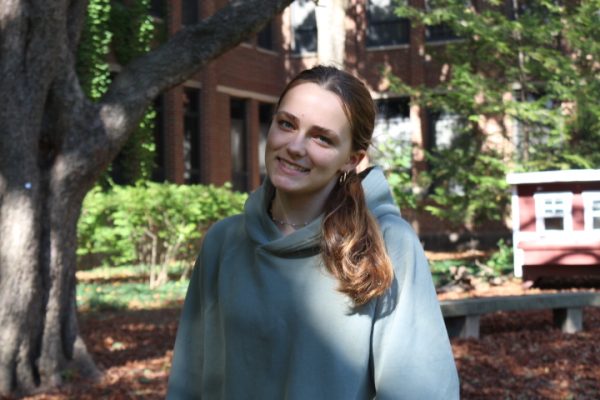Opinion | History classes are Eurocentric
November 10, 2022
ETHS is well-known for the wide range of classes that the building offers, but it seems to be lacking in its representation of different views in history. The white, European side in textbooks is often the winning side, causing it to be taught to students with priority. Students will first learn who won what war, and how many were killed to do so, but the curriculum misses the full picture. What happened to people who didn’t have their stories told? Textbooks need to be rewritten and the curriculum needs to be retaught to answer that question.
Currently, ETHS is one of the only schools of its size to not offer AP World History. However, AP European History and AP United States History is provided. Non-elective history credit is not offered for the History of African Americans and Chicano Movement courses, which studies Mexican history. All students could benefit from an AP World History class, as it would teach them more backgrounds, instead of the typical eurocentric view. Thus, this would solve the struggle of the school needing to teach multiple backgrounds at an AP level, because world history would account for those. If students wanted to go more in-depth on a specific culture or race, separate classes should be offered at the honors level, eliminating the inequitable amount of white-dominant views.
Sophomore Maisy Peter explains that her academic career has mostly surrounded the white-dominant side.
“When I started learning history in fourth grade, we learned everything from the European and American point of view up, until eighth grade. It wasn’t until freshman year that I learned about other cultures and places”.
Elementary-aged kids are often hidden from the “ugly” side of the story, because of their innocence and inexperience with the subject. Peter experienced this throughout her younger years. Yet, shielding students from the story only makes it more shocking when they do learn the full truth.
I (Stella Davis) was shocked in September of this year when my class watched the videos about 9/11, like we always do, but I just recently learned about the damage America did in Afghanistan to innocent people there after the attack. This only further shows how much is hidden from us when we are younger to mask the truth. 9/11 is a horrific subject to learn about. It covers the intense fires, destruction of the buildings, and even videos of people jumping off of the Twin Towers, but as soon as we reach the video of what happened in Afghanistan, my teacher claimed it is “too graphic” to watch. I only learned about the event because I took the time outside of school to research it and better understand the full story of the event.
Peter also feels like certain parts of history are hidden from her.
“I’m Indian and Pakistani, and I only learn about that from my family who is whitewashed because they have lived here for many generations. Many of my peers from East Asia or Africa can agree that their family is already settled in America and have accepted westernized cultures.”
We learn all about the worlds wars and the Holocaust but, as Peter says, “I cannot tell you about something from my culture, other than the clothes we wear to parties.”
Maisy and many other students have to do their own research to learn about their culture, when that should be taught in class.
How history is taught does heavily depend on the teacher and how they follow the curriculum.
Sophomore Naomi Criz explains that her civics teacher is a strict textbook follower in class.
“We often have readings and worksheets planned for the day, and we don’t have group discussions outside of our curriculum,” Criz says.
This type of teaching typically has students answering teacher or textbook questions and not asking questions of their own. Ultimately, this stops them from being curious about subjects and instead causes them to accept the facts being taught. It can also be a lot harder to stay focused when the teacher is the only one talking for the entire duration of the class, but the teacher’s style makes all the difference.
“My teacher is very into history, and we dive deep into every topic, unlike my Humanities teacher last year, who had to skip over a bunch of material to get all the requirements in,” Peter says.
Diving deep into ideas of history and having discussions as a class can promote curiosity about the facts and questions the eurocentric view. ETHS needs to recognize that their curriculum is not as inclusive as they think and that more needs to be offered. AP World History would be a great addition to classes along with promoting more discussions in class to counter the typical white, European side of history.











joanna michel • Nov 10, 2022 at 5:05 pm
I 100% agree! This is way overdue in education overall. Is there a student committee organized to advocate for changes to the curriculum?